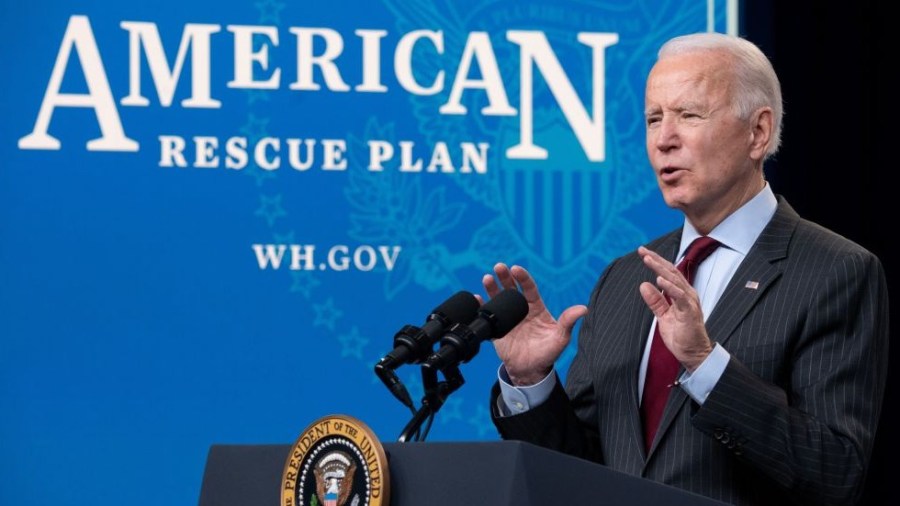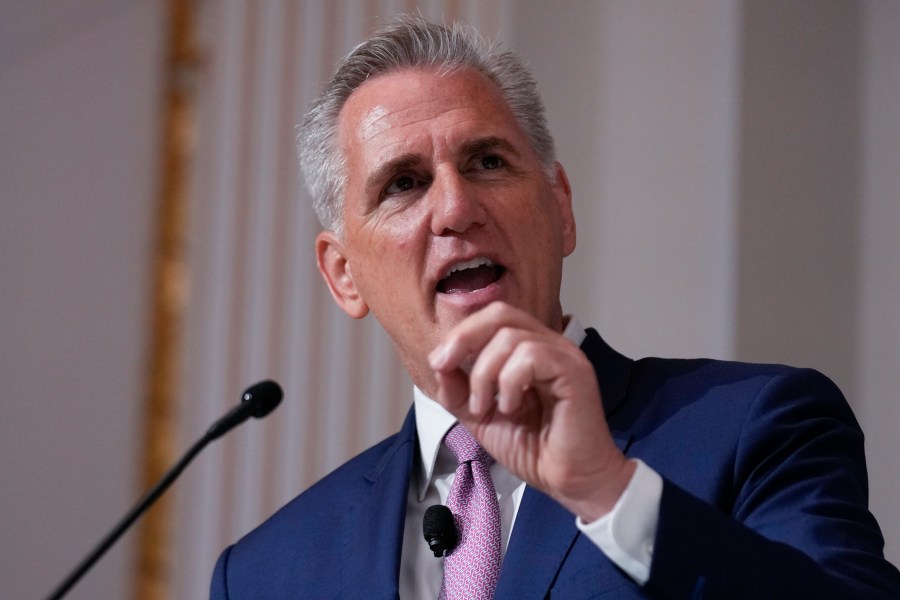Cheat sheet: What’s in Republicans’ sweeping 320-page debt limit proposal
House Republicans this week unveiled a sprawling 320-page proposal to raise the debt limit and are sprinting toward a vote next week.
The sweeping bill lays out a proposal to raise the debt ceiling, which puts a limit on how much the debt the government can owe on to pay the country’s bills, by $1.5 trillion or through the end of next March, whichever comes first.
Congress is expected to have until sometime in the summer to raise the roughly $31.4 trillion cap, or risk what experts say could be an unprecedented default.
Republicans have insisted any action to raise the debt ceiling be paired with significant fiscal reform, seeking concessions from Democrats in exchange for their cooperation.
After President Biden insisted on a “clean” debt limit increase, Speaker Kevin McCarthy (R-Calif.) moved forward with his own debt ceiling bill that includes a slew of GOP policy proposals Republicans say will generate about $4.5 trillion in savings.
Here are some of the areas the bill focuses on:
Budget caps

Rep. Rosa DeLauro (D-Conn.) (Greg Nash)
The bill would impose limits on the government funding hashed by lawmakers annually as part of the appropriations process.
The measure would revert funding for fiscal 2024 to fiscal 2022 levels and limit spending growth to 1 percent annually over the next decade.
A large swath of Republicans support the idea, which is similar to one the House Freedom Caucus included in its proposal to raise the debt ceiling last month.
But it’s still unclear what effect the bill would have on defense funding — and thus on nondefense funding as well — as the legislative text fails to include language explicitly excluding defense programs from cuts.
The proposed caps have been met with swift opposition from Democrats.
“This reckless bill does not give that assurance. It either puts defense or Veterans funding on the chopping block or cuts other critical government programs by more than 22 percent—a cut far lower than the 2022 level,” Rep. Rosa DeLauro (Conn.), top Democrat on the House Appropriations Committee, said in a statement.
“As hard as they might try, Republicans cannot have it both ways,” she added.
Student loans

People in favor of President Biden’s student loan forgiveness plan rally in front of the Supreme Court in Washington, D.C., on Feb. 28 as the court hears the Department of Education v. Brown and Biden v. Nebraska. (Annabelle Gordon)
Republicans are using the debt limit bill to try to roll back several Biden administration actions on student loans, including the ongoing loan repayment pause and a sweeping plan to provide widespread forgiveness.
The student loan pause was first implemented under the Trump administration near the start of the coronavirus pandemic, and later it was extended under both the Trump and Biden administrations. But Republicans say the continued relief is unnecessary and costly, pointing to other pandemic-era aid that has since wound down.
The Biden administration also released a plan seeking to provide up to $20,000 in student loan forgiveness for some borrowers. That hit a roadblock last year when it was met with several legal challenges. The Supreme Court is expected to make a decision in a case that could decide the fate of the plan later this year.
Another plan under target is an income-driven repayment plan rolled out by the Education Department earlier this year that could lower the cost of monthly bills.
Energy

Wind turbines operate in Livermore, Calif., on Aug. 10, 2022. (AP Photo/Godofredo A. Vásquez, File)
A large chunk of the bill consists of energy proposals, including the entirety of the GOP’s signature energy package, the H.R.1 Lower Energy Costs Act.
That includes proposals aimed at boosting oil and gas production and mining, cutting down on the time it takes to greenlight energy projects.
Work requirements

Jaqueline Benitez, who works as a preschool teacher and depends on California’s SNAP benefits to help pay for food, browses a food aisle in Bellflower, Calif., on Feb. 13. (AP Photo/Allison Dinner)
The bill would beef up work requirements for the Supplemental Nutrition Assistance Program (previously known as food stamps) for those between 50 and 56 years old. There are also changes proposed to the Temporary Assistance for Needy Families program.
A portion of the bill also outlines work requirements for Medicaid, though it does not include changes to Social Security and Medicare. The Medicaid changes include requiring recipients who do not have dependents and are not disabled to work, look for employment or be involved in so-called “community engagement” of some kind for at least 80 hours a month.
“Our plan ensures adults without dependents earn a paycheck and learn new skills,” McCarthy said. “By restoring these common sense measures, we can help more Americans earn a paycheck, learn new skills, reduce childhood poverty, and rebuild the workforce.”
Coronavirus funds

(Getty)
The bill makes good on a long-promised push by Republicans to target already approved coronavirus funds the party says have gone unspent.
The text calls for the rescission of unobligated coronavirus funds approved as part of the American Rescue Plan, the $1.9 trillion coronavirus rescue package Biden signed into law in March 2021.
Inflation Reduction Act

Speaker of the House Kevin McCarthy in New York on April 17. (AP Photo/Seth Wenig)
The bill additionally has measures targeting aspects of the Inflation Reduction Act, a signature piece of President Biden’s domestic agenda that Democrats passed without GOP support last year.
That includes roughly $70 billion in an IRS funding boost. McCarthy also said the legislation targets so-called “green giveaways,” appearing to refer to green energy tax credits in the Democratic plan.
Among the tax policies included in the Democrats’ Inflation Reduction Act that Republicans target are tax credits for electric vehicles, as well as for solar and wind infrastructure.
Copyright 2023 Nexstar Media Inc. All rights reserved. This material may not be published, broadcast, rewritten, or redistributed. Regular the hill posts







